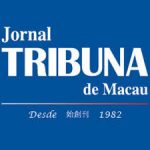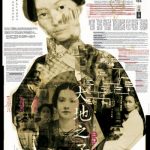Part 3
 The public response to the previous articles suggests that Macanese cultural identity is not only a sensitive issue in Macau, but outside the SAR as well. Based on recent social media activity and personal messages, many people seem interested in a dialogue on Macanese identity, a dialogue that, on closer inspection, may involve culture, economics, and international relations. To those critics who maintain that my characterization of the discussion should not be taken seriously, or is somehow “invalid”, allow me to respond in this way.
The public response to the previous articles suggests that Macanese cultural identity is not only a sensitive issue in Macau, but outside the SAR as well. Based on recent social media activity and personal messages, many people seem interested in a dialogue on Macanese identity, a dialogue that, on closer inspection, may involve culture, economics, and international relations. To those critics who maintain that my characterization of the discussion should not be taken seriously, or is somehow “invalid”, allow me to respond in this way.
As Antonio Jose’ de Freitas mentioned on Feb. 26, 2016 in the Macau newspaper JTM, the purpose of the articles is to show concern that Macanese identity is in danger of becoming marginalized in China. The reason is because the discussion on identity, up to now, has been narrow, unfocused, and at times, historically inaccurate. It is not simply a question of whether younger generations will be speaking Portuguese in the future. Nor did I argue that Portugal’s contributions to Macau are no longer important. That is not what I wrote or intended to imply. All of Macau should celebrate the achievements of Maquistas in Macau and those of other mixed-race Portuguese throughout Asia over the last five centuries. As a member of this ethnic group, I personally look upon this history with great pride.
However, it is not in the long term interests of Maquistas to consider themselves apart from Macau’s larger society. Rather, I suggest that a better strategy is to demonstrate solidarity with all Macanese by developing more programs that contribute to the greater good. (To be clear, I am not suggesting that little has been done since the handover; only that given the resources and talent in Macau, much more can be done in the future.)
One important contribution could be an accurate cultural definition of who all Macanese are, including Maquistas in Macau. This is the crux of Macanese identity, and the root to fundamental questions many people ask: Who am I? ; and What are my cultural origins? The inability of younger Macanese to identify themselves culturally in relation to others is a major stumbling block preventing many from defining their roles in Macau. To alter the current debate, allow me to propose a new definition of Macanese identity. The significance of this new conceptualization will be discussed later in the article.
A New Definition of Macanese Identity
 In my work, I define “Macanese” as either Portuguese Eurasians (Maquistas or “Tou San”) born in Macau; or the descendants of Portuguese Eurasians born in, or with familial ties to Portugal, Goa, western India, and southern China, and specifically to Macau, Hong Kong, Canton, Shanghai, Japan, Malaysia, Indonesia or Timor. [1] In this characterization, Maquistas (named for the patois) are both a sub-culture in Macau and members of the larger society and people I generally identify as “Macanese”. This definition is based on the historical origins of the Macanese since the 1550’s, who formed Christianized communities, spoke a creole or “maritime” language influenced by the various trade cultures in Asia, and who were rooted in the cultural world of Portugal. After 1600 Macau became not only a central trading port in Asia, but also the cultural homeland of many mixed-race Portuguese who continue to identify with its traditions. This accounts for the existence of Macanese in Macau and in the diaspora.
In my work, I define “Macanese” as either Portuguese Eurasians (Maquistas or “Tou San”) born in Macau; or the descendants of Portuguese Eurasians born in, or with familial ties to Portugal, Goa, western India, and southern China, and specifically to Macau, Hong Kong, Canton, Shanghai, Japan, Malaysia, Indonesia or Timor. [1] In this characterization, Maquistas (named for the patois) are both a sub-culture in Macau and members of the larger society and people I generally identify as “Macanese”. This definition is based on the historical origins of the Macanese since the 1550’s, who formed Christianized communities, spoke a creole or “maritime” language influenced by the various trade cultures in Asia, and who were rooted in the cultural world of Portugal. After 1600 Macau became not only a central trading port in Asia, but also the cultural homeland of many mixed-race Portuguese who continue to identify with its traditions. This accounts for the existence of Macanese in Macau and in the diaspora.
Several researchers over the last century, including Macanese historian C.A. Montalto de Jesus in 1902, have argued that Macau’s society has been transformed by a succession of ethnic minorities who migrated into the territory during various periods, all attracted by trade.[2] These included Chinese from Guangdong and Fujian, as well as other ethnic groups from Southeast Asia. Over time this mixing of cultures and commercial activity resulted in what French historian Sheyla Zandonai called “… complex processes of intermarriage which have been continuously woven into Macau’s social and cultural fabric since the 16th century beginnings of the Portuguese enterprise in China.” [3] As a result, Macau’s society today reflects their multicultural presence and remains highly diverse.
Thus, many people in Macau today are considered Eurasians with distant familial ties to Portugal, and are uniquely different from the inhabitants of mainland China. According to Portuguese historian Jorge Morbey, they are the result of inter-racial contacts between Portuguese and Eastern peoples.[4] These contacts, Morbey argues, resulted in “cultural hybridization”, or racial mixing through marriage, that was reinforced by the Christianization of indigenous people with whom the Portuguese established lasting cultural, personal, and commercial relations. Thus, cultural hybridization essentially produced Macanese culture, a unique element of the region’s culture that existed alongside Chinese and European Portuguese cultures, all of which form the basis of Macau’s culture in the 21st century.
The Significance of Macanese Identity for Macau’s Future
Once there is greater acceptance of this unique cultural history, without the burden of having to defend traditional Portuguese or Maquista elements that are thought to be under attack, the advantages will be clear. One beneficiary, for example, may be Macanese who work in Macau’s Tourism industry, which could profit from “cultural heritage tourism” through their contributions of a more comprehensive portrayal of Macau’s history to international visitors. Some experts even see Macau’s cultural heritage as an advantage over such competitors as Las Vegas and Singapore.[5]
Other beneficiaries are students and teachers. My recent tenure at the University of Macau (Nov. 2015) revealed a wealth of historical, documentary, and biographical information held by local Macanese and associations that could enhance education.[6] Since this information has not been incorporated into formal curricula about Macau and its people, many university and secondary students are unaware of the MSAR’s unique past. This could change if local and diaspora Macanese allow family and association histories to become part of public archives and advocate for more accurate narratives of Macau’s history.
Another beneficiary, which could have far reaching significance in the future, is Macau’s international trade and commerce. Since the middle of the 16th century many Macanese have served as merchants, commercial intermediaries, and entrepreneurs in Macau and other parts of the world where diaspora communities developed.[7] The tradition continues today as younger generations of Macanese in Europe, the United States, Canada, Australia, and Brazil work in international trade, technology, education, food production, medical research, bio-technology, pharmaceuticals, graphic design, art, energy, environmental conservation, and finance, some in Fortune 500 companies. The bond that holds many together, despite time and distance, is a familial tie to Macau.
Many in the diaspora also have developed working relationships with European Portuguese descendants through local associations in their home countries. The recognition of a shared history through Macau’s historic connection to Eastern and Western trading partners has led to the existence of a world-wide network of Macanese and Portuguese professionals, again supported by cultural and historical ties, which remains largely untapped. Macanese in Macau could well utilize this network to foster the diversification of the local economy, and assist the MSAR in decreasing its dependence on gaming.
The tangible results of a better understanding of Macau’s history, and the roles that Macanese played in that history, are far from “irrelevant”, if I may answer a recent criticism. They range from personal recognition of a place and time when individual families first appeared; to a collective sense of struggles and triumphs among those who remained in Macau and those who migrated elsewhere; to an appreciation that a shared culture may have distinct advantages if utilized in the real world of international trade and economic development.
It is now up to each of us to take the next step.
Notes:
[1] As Historian Jorge Morbey (former head of the Instituto Cultural de Macau) stated: “We have already seen that by Macanese we are not merely referring to those who were born in Macau. As we know, the majority of the population born in Macau is Chinese. Chinese from Macau call themselves “Ou Mun Yan” (Macau people) and reserve the designation “tou san” (children of the land) for the Macanese. In the old language of Macau, the Macanese referred to them by the term “maquista”, while the Chinese they called “china”. A Chinese person who through baptism had acquired a Christian/Portuguese name was given the title “chon kao” (entered into the religion) and was granted a similar status to that of a Macanese.” Lecture notes shared by Morbey with the author in 2014.
[2] For example, see C.A. Montalto de Jesus, Historic Macao, London, 1902, as well as the work of C.R. Boxer, including his work, Fidalgos in the Far East: 1550 – 1770, Hong Kong University Press, 1968. See also Mark Meuwese, Brothers in Arms, Partners in Trade: Dutch-Indigenous Alliances in the Atlantic World, 1595-1647, the Netherlands, 2012, p. 129; Stefan Halikowski Smith, “Creolization and diaspora in the Portuguese Indies: the social world of Ayutthaya, 1640-1720”, Leiden, Boston, 2011; and Genevieve Escure and Amir Schwegler, Creoles, Contact and Language Change: Linguistic Interpretations, Philadelphia, 2004, 5-6. See also A. J. R. Russell-Wood, The Portuguese Empire: 1415-1808, Johns Hopkins Press, 1998, James C. Boyajian,Portuguese Trade in Asia under the Hapsburgs, 1580 –1640, Johns Hopkins Un. Press, 1993; and George Bryan Sousa, The Survival of Empires: Portuguese Trade and Society in China and the South China Sea 1630 –1754, Cambridge University Press, 1986.
[3] Sheyla Zandonai, “Global Diversity, Local Identity: Multicultural Practice in Macau”, Intercultural Communications Studies XVII: 1, 2009: 19-32.
[4] Lecture notes shared with the author in 2014 by Jorge Morbey. See also Morbey’s, “Aspects of ‘Ethnic of Identities’ of the Macanese, Review of Culture, 1994, Instituto Cultural do Governo da R.E.M. de Macau, and Joao de Pina y Cabral, Between China and Europe, Person, Culture and Emotion in Macao, 2002.
[5] Hilary du Cros A, Emerging Issues for Cultural Tourism in Macau, Journal of Current Chinese Affairs 1/2009: 73-99.
[6] The author served as a visiting U.S. Fulbright Scholar with dual appointments at Moon Chun Memorial College and Chao Kuang Piu College at the University of Macau (Henquin) in November 2015.
[7] See my article “Family Networks, Diasporas, and the Origins of the Macanese in Asia”, published in the “Review of Culture”, No. 48, 2015, Instituto Cultural do Governo da R.A.E.M. Macau.